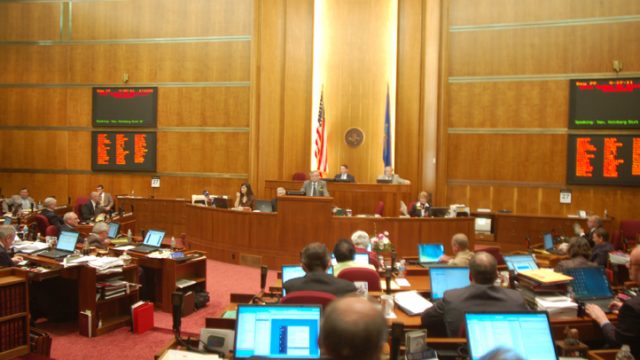Bette Grande: Legislature May Get A Lesson In Economics From The Oil Markets

As the Governor and Legislature meet to prepare for the next legislative session they do so with rising uncertainty. Budgets and new spending will be debated, but how reliable is the budget forecast for the next biennium?
Oil prices have dropped significantly in the last several months and where prices go from here is anyone’s guess. Oil prices are a factor in projecting revenue but the bigger question facing the state in the coming legislative session is oil production. And, right now oil producers are getting squeezed.
[mks_pullquote align=”right” width=”300″ size=”24″ bg_color=”#000000″ txt_color=”#ffffff”]”The bottom line is that for the first time in several legislative sessions the tax money flowing to the State could be far less than projected.”[/mks_pullquote]
If someone owns a non-renewable asset and your profit from the sale of that asset goes down, at some point the best decision is to sit on the asset and wait. What would you do? For oil companies – and certainly for mineral owners – the oil is not going anywhere and it is going to be worth a lot more at some point in the future. It only makes sense to reduce production and wait, if you can.
Other Factors
The price of oil is an important factor in the economic decision concerning drilling and production, but it is not the only factor. The other side of the equation is cost. The State added flaring restrictions in October and oil conditioning rules are on the horizon. Whether you agree with those policies or not, they clearly increase the cost of production. When you couple a lower price of oil with a higher cost of production it forces production lower.
In addition, with nearly all mineral leases now held by production there is no rush to drill the in-fill wells. Because of this we are already seeing a seasonal impact on drilling activity. A seasonal slow down may be extended into the warmer months if oil production economics do not improve.
What does it mean?
The bottom line is that for the first time in several legislative sessions the tax money flowing to the State could be far less than projected. Remember, we are not simply talking about oil tax revenue. If production drops significantly we will see a sharp drop in sales and income taxes as well. Less production means fewer jobs, lower taxable sales and lower personal income (for both employees and mineral owners).
There again is no shortage of new spending initiatives but if we see an economic slow down tax reductions must be a priority. The Legislature will be deliberate as it debates budgets, taxes and spending and that shows leadership.
The situation we face today in North Dakota also illustrates that policy does matter. When you bow to pressure from environmentalists and out-of-power political parties, those policy actions have consequences. As we enter the next biennium we may look back at the impact and timing of those policy decisions on an industry that has been very good to the State of North Dakota.




